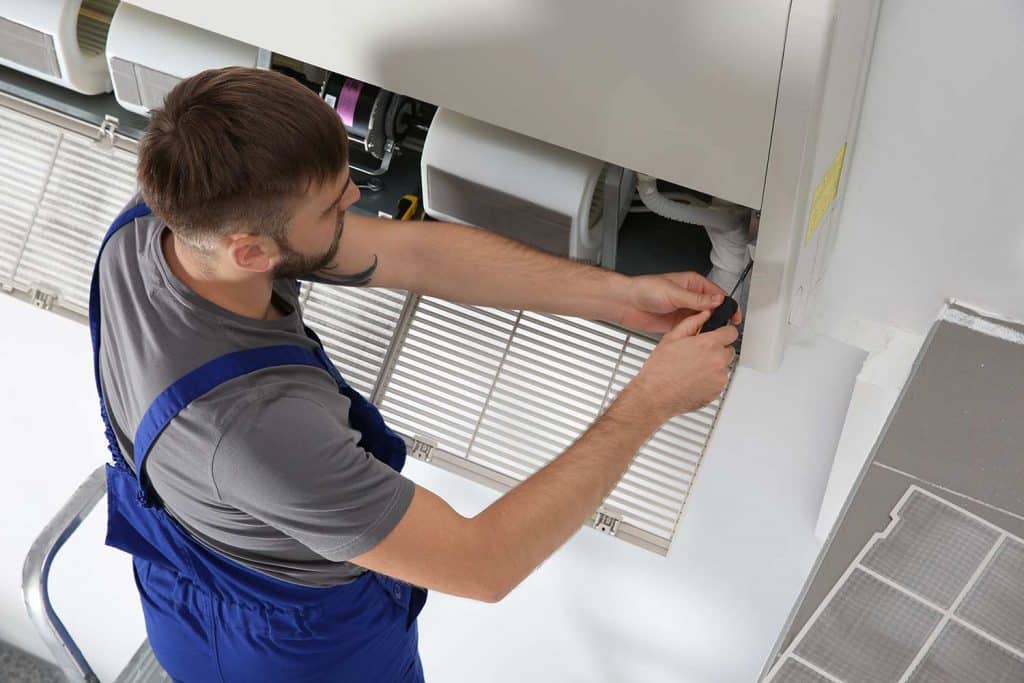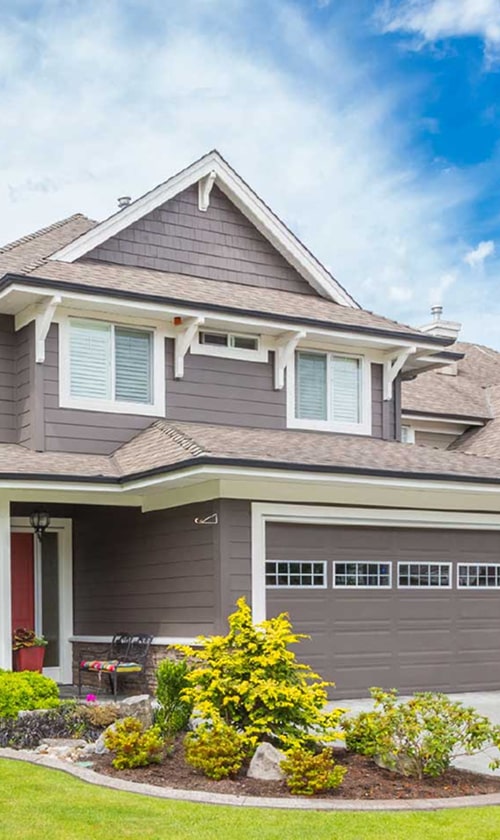
In Georgia’s warm climate, a functional and efficient air conditioning system is not just a luxury, but a necessity for comfort and health. At Weather Masters Of Georgia, we recognize that the decision to replace an air conditioner involves various factors, including financial considerations, efficiency, and long-term benefits.
This guide is designed to provide an exhaustive look into all aspects of air conditioner replacement costs, helping you make an informed decision that aligns with your needs and budget.
What is the Role of Air Conditioners
Air conditioners are central to maintaining a comfortable and healthy living environment, especially in regions with hot and humid climates like Georgia. They regulate indoor temperatures, maintain air quality by filtering out pollutants, and control humidity levels, which is crucial for both comfort and health.
Why Air Conditioner Replacement is Necessary?
Replacing an air conditioner is often a necessary step for several reasons:
Efficiency
Older units tend to be less efficient, consuming more energy and leading to higher utility bills. Newer models are designed with improved technology that enhances efficiency and reduces operating costs.
Performance
Over time, air conditioners may lose their cooling effectiveness, struggle to maintain consistent temperatures, or require frequent repairs. A new unit ensures reliable and effective cooling.
Technological Advancements
Modern air conditioners come with advanced features like programmable thermostats, smart home integration, and improved air filtration systems, offering enhanced comfort and better air quality.
Environmental Considerations
Newer models are often more environmentally friendly, using refrigerants that are less harmful to the ozone layer and reducing overall carbon footprint.
Health and Safety
Older AC units can develop issues like mold and mildew buildup, which can affect indoor air quality. Replacing your unit can ensure a healthier living environment.
Identifying the Right Time for Air Conditioner Replacement: Key Indicators
Knowing when it’s time to replace your air conditioner can save you money and prevent discomfort. Here are some key indicators:
- Age of the Unit: Most air conditioners have a lifespan of about 10-15 years. If your unit is approaching or has surpassed this age, it’s time to consider a replacement.
- Frequent Repairs: If you’re constantly calling for repairs, these costs can add up. Replacing your unit might be more economical in the long run.
- Inefficiency: An increase in your energy bills without a corresponding increase in usage is a sign of inefficiency. Newer models are more energy-efficient and can reduce your energy costs.
- Inconsistent Cooling: If some rooms are cooler than others or the AC struggles to maintain a set temperature, it could indicate that your system is failing.
- Strange Noises or Smells: Unusual noises or odors coming from your AC unit can be a sign of serious problems that might warrant a replacement.
- R-22 Freon Usage: If your air conditioner uses R-22 Freon, which is being phased out due to environmental concerns, upgrading to a new model is advisable.
Comprehensive Cost Factors in Air Conditioner Replacement
- Type of AC Unit: The cost varies significantly based on the type of air conditioner you choose. Central air conditioners, while more expensive, offer efficient cooling for larger spaces. Split systems are cost-effective for smaller areas or homes without ductwork. Window and portable units are less expensive but typically less efficient for larger spaces.
- Size and Capacity: Selecting the right size is crucial. An air conditioner that’s too small won’t cool effectively, while one that’s too large will cycle on and off frequently, increasing wear and tear and energy costs. The correct size depends on the square footage of your home, ceiling height, window size, and insulation quality.
- Energy Efficiency: The SEER (Seasonal Energy Efficiency Ratio) and EER (Energy Efficiency Ratio) ratings determine how much energy the air conditioner uses. Higher ratings mean better efficiency but usually come with a higher price tag. However, they can offer significant savings on energy bills in the long run, especially in a state like Georgia, where air conditioners are used extensively.
- Regional Climate: In Georgia, the air conditioner must be robust enough to handle high temperatures and humidity. This requirement can influence the type of system you choose, its size, and its efficiency rating.
- Ductwork Considerations: If your home already has ductwork, this can reduce installation costs. However, if the ductwork is old or incompatible with the new system, it may need to be repaired or replaced, adding to the overall cost.
Detailed Analysis of Air Conditioner Installation Costs
When considering the installation of a new air condition or replacing the old unit in Atlanta, homeowners can expect a broad price range, typically between $5,500 and $19,000. On average, the cost hovers around $9,550. This variance in pricing is influenced by several key factors, each playing a crucial role in the final cost.
- Type of Air Conditioner: The installation cost differs based on the type of AC unit. Central air systems, for instance, generally require more labor and materials compared to window units or portable air conditioners.
- Complexity of Installation: The complexity of the job can significantly impact the cost. Factors such as the accessibility of the installation site, the need for additional ductwork, or modifications to existing systems can increase labor hours and materials needed.
- Condition of Existing Infrastructure: If your home already has compatible ductwork and electrical systems, installation costs can be lower. However, upgrading or installing new ductwork, or making electrical upgrades to accommodate the new system, can add significantly to the overall cost.
- Labor Costs: The expertise and experience of the installation team play a crucial role. While it might be tempting to opt for lower labor costs, choosing experienced and certified professionals ensures a more reliable and efficient installation, which can save money in the long run.
- Geographical Location: Installation costs can also vary depending on your geographical location. Labor costs in certain areas may be higher due to the cost of living, demand, and local regulations.
- Additional Features and Services: If the installation includes additional features like smart thermostats, air purifiers, or custom modifications to your home’s HVAC system, these will add to the cost.
Additional Costs Analysis
- Removal and Disposal: The old unit must be safely removed and disposed of, which may incur costs depending on local regulations and the size of the unit.
- Electrical Upgrades: Particularly in older homes, the electrical system may need to be upgraded to support the new air conditioner, which can be a significant part of the budget.
- Maintenance and Warranty: Regular maintenance is essential for the efficiency and longevity of your AC unit. Opting for an extended warranty can provide peace of mind but will add to the initial cost.
- Rebates and Tax Credits: Look for energy-efficient models that may qualify for rebates or tax credits, offering long-term savings.
- Additional Features: Modern air conditioners come with features like air purifiers, dehumidifiers, and smart thermostats. While these enhance comfort and efficiency, they come at an extra cost.
Strategies for Maximizing Savings on Air Conditioner Replacement
Invest in Energy-Efficient Models
One of the most effective ways to save money in the long run is by choosing an air conditioner with high energy efficiency. Look for models with higher SEER (Seasonal Energy Efficiency Ratio) and EER (Energy Efficiency Ratio) ratings. These units, while potentially more expensive upfront, can significantly reduce your energy bills over time.
Utilize Rebates and Tax Credits
Many energy-efficient air conditioners qualify for rebates and tax credits. These incentives can substantially lower the initial cost of purchasing a new unit. It’s important to research available options in your area or consult with experts like Weather Masters Of Georgia, who can guide you through the process of identifying and applying for these financial incentives.
Select the Right Installation Services
Proper installation is crucial for the optimal performance and efficiency of your air conditioner. Inadequate installation can lead to increased energy consumption and frequent repairs. Investing in professional installation services ensures that your unit operates at its best, providing long-term savings.
Choosing the Ideal HVAC Contractor for Your Needs
- Look for Experience and Expertise: The quality of installation and service you receive is directly linked to the expertise of the HVAC contractor. Choose a contractor with a proven track record of successful installations and a deep understanding of different types of air conditioning systems.
- Verify Licensing and Certification: Ensure that your chosen contractor is licensed and certified. This is not just a matter of compliance but also a guarantee of their professionalism and adherence to industry standards.
- Read Customer Reviews and Testimonials: Customer reviews and testimonials offer valuable insights into the contractor’s reliability, quality of work, and customer service. Positive feedback from previous clients is a strong indicator of a contractor’s competence.
- Compare Quotes: While cost should not be the only factor in choosing a contractor, it is important to compare quotes from different providers. This helps you understand the market rate and find a service that offers the best value for your money without compromising on quality.
- Consultation and Communication: A reputable contractor like Weather Masters Of Georgia will offer a thorough consultation to assess your needs and recommend the best solutions. Clear and open communication throughout the process is essential for a satisfactory service experience.
Long-Term Considerations and Benefits of Air Conditioner Replacement
Investing in a new air conditioner goes beyond immediate comfort; it’s a decision that brings numerous long-term advantages. Here’s a detailed list of considerations and benefits to keep in mind:
Enhanced Property Value
- A modern, efficient air conditioning system can increase your home’s market value.
- Buyers often look for homes with reliable and updated HVAC systems, making your property more attractive in the real estate market.
Improved Indoor Air Quality
- New air conditioners come with advanced filtration systems that better remove pollutants and allergens, promoting a healthier indoor environment.
- This is particularly beneficial for individuals with allergies or respiratory issues.
Energy Efficiency and Cost Savings
- Modern units with higher SEER and EER ratings use less energy, leading to lower utility bills.
- Over time, the savings on energy costs can significantly offset the initial investment in a new system.
Consistent and Enhanced Comfort
- New air conditioners provide more consistent cooling and better humidity control, enhancing overall comfort.
- Advanced features like programmable thermostats and variable speed motors offer improved temperature control.
Reduced Carbon Footprint
- Energy-efficient air conditioners contribute to lower carbon emissions, aligning with environmental sustainability goals.
- By consuming less energy, these units play a part in reducing the overall environmental impact.
Longevity and Reliability
- Newer models are designed for greater durability and longer service life.
- With regular maintenance, a new air conditioner can remain effective and efficient for many years, providing peace of mind and reduced likelihood of frequent repairs.
Warranty and Peace of Mind
- Most new air conditioners come with substantial warranties, offering protection against unexpected repair costs.
- This warranty coverage provides a sense of security and assurance in your investment.
Technological Advancements
- Modern air conditioners often include smart features, such as Wi-Fi connectivity and integration with home automation systems.
- These technologies offer convenience, such as remote control of your AC, and can further enhance energy savings.
Adaptability to Future Innovations
- New systems are often more adaptable to future technological upgrades or enhancements.
- This adaptability ensures your system remains compatible with the latest advancements in HVAC technology.
Increased Energy Independence
- With the trend towards renewable energy sources, newer air conditioners are often designed to work more efficiently with solar power and other green energy solutions.
- This integration can further reduce dependence on traditional energy sources and increase sustainability.
Conclusion
Replacing your air conditioner is more than a mere upgrade; it’s a strategic investment in your home’s future. At Weather Masters Of Georgia, we understand the importance of balancing comfort, efficiency, and budget.
By opting for energy-efficient models, leveraging financial incentives, and choosing a skilled HVAC contractor, you’re not just enhancing immediate comfort but also ensuring long-term savings and benefits.
A well-selected air conditioner boosts your home’s value, improves air quality, and contributes to environmental sustainability. Trust us to guide you through every step, from understanding the costs to regular maintenance, to ensure your new air conditioning system is a valuable, cost-effective asset for years to come.




